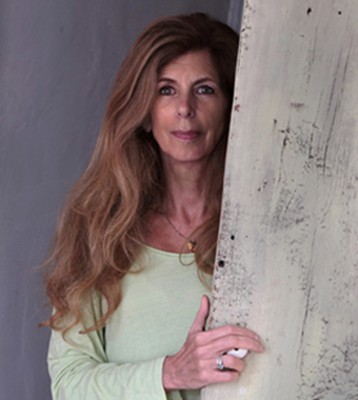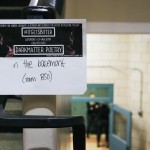
In high school, poetry was often seen as intimidating. Its abstract metaphors, unpredictable rhyme schemes and hidden meanings seemed inaccessible and distant. Poet Marie Howe, however, contradicts these stereotypes beautifully.
Howe writes verse that walks the fine line between the spiritual and the tangible, invoking concrete images of everyday life and using these relatable images to represent much larger themes such as spirituality and philosophy.
Howe will read her poems and speak in depth about poetry and theology Friday in “Spirituality, Poetry and Imagination,” the opening event of “Theopoetics: A Trandisciplinary Conference with Workshops and Dialogue,” hosted in the Boston University College of General Studies by the School of Theology as well as multiple writing and arts organizations on campus. In the series, experts from all over the East Coast and from multiple disciplines — philosophy, theology, literature and social activism — will discuss the intersectionality of the imagination and theology.
An evening of poetry may seem daunting, but Howe said her poems are something everyone can relate to.
“Most of us are afraid of poetry because it asks us to be in one place at one time,” Howe said. “It calls to the deepest part of ourselves.”
Writing poetry, a form of literature rooted in the sentimental and philosophical, is an unconventional transition from Howe’s origins as a journalist and an educator.
“I wrote features articles for a newspaper, and it was much more lyrical than straight journalism,” Howe said. “I got to review art shows and dance shows. It was a long time ago, when I was in my 20s. I enjoyed it, but then I realized I couldn’t spell, so I would always have to be corrected.”
Her career path always involved some sort of writing, but in different forms.
“As the months went by, I realized I didn’t want to work a nine-to-five job in an office,” she said. “After a lot of thought, I decided I wanted to be a teacher. I taught high school English for five years and then I had a kind of awakening, which I guess happens to a lot of people.”
Poetry came to Howe when she was in a place of transition and mourning. Her father had just passed away, a long relationship had recently ended and she no longer wanted to work in an office at a conventional job. She was 30 years old and unsure of what she wanted to dedicate her life to, and eventually she found herself drawn to poetry.
Following her awakening, Howe received a fellowship from Dartmouth College that allowed her to try out different courses in multiple areas of study.
“[At Dartmouth], I poked my head into a creative writing class and it changed my life,” Howe said. “I’d studied poets and taught poetry, but I didn’t know about contemporary poets and didn’t know [writing poetry] was something you could do. I went back to graduate school at Columbia, and my life took a different path.”
Howe was ready to begin the next chapter of her life, and writing poetry allowed her to start anew. She did not see her transition to writing poetry as a result of fate, but rather as something she felt innately drawn to.
“I wouldn’t call it a chance encounter,” Howe said. “I always felt like this was my calling. There’s a kind of hunger in your soul for your true calling.”
Howe writes poetry to bridge the gap between the spiritual and the objects of daily life. For her, these two aspects of life are inseparably linked to one another.
“I write about the particular role of everyday images,” Howe said. “I’ll listen to my dog digging his paws into the sofa, and the sounds become such familiar sounds to me. There’s a white cup of tea on a white table. These things make up the world we live, breathe and die in. Whatever spirituality is, it’s living among all this stuff.”
Howe said she believes her writing style is constantly changing and influenced by the events in her life. She has no set schedule for writing, but rather finds arbitrary inspiration from her experiences and the world around her.
In particular, the death of her brother in 1989 shaped the way she incorporates images and metaphors in her poems.
“After my brother died from AIDS, I wanted to write poems that were accessible and that had very few metaphors,” Howe said. “That was what inspired my second book. I think my style is always [transforming].
“This is the truth — I really don’t know how to write a poem,” she added. “I scribble out 80 percent of what I write. What comes up in a book is just what survives. I want to write in a way that makes me discover something that I don’t know. I think poetry is a way of being or thinking, a way of speaking or thinking out loud as you go.”
A previous version of this story did not include the proper title of Howe’s talk “Spirituality, Poetry and Imagination,” or the full name of “Theopoetics: A Trandisciplinary Conference with Workshops and Dialogue.” This correction is reflected in the story above.




